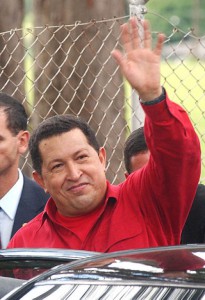
Our founders were very careful to give us a republic with divided powers and checks and balances.
Their challenge was to construct a system where the “factions” in the nation could tussle over controversies and come to decisions, while ensuring that a mere majority could not trample on the rights of a minority, and no power could come to dominate the others.
While in office, George W Bush had a policy of expanding the powers of the executive that he believed had been lost since the 1960s.
The Obama administration has “announced a one year delay” in a requirement of the law that employers provide coverage, or pay fines.
The current president is fond of reminding us that the PPACA (Obamacare) is “the law of the land”. He and his allies say we should stop bickering about it and follow it.
There is no provision in the PPACA (aka Obamacare) that allows this one year delay. The employer and individual mandates are explicit. The SCOTUS called the mandate a “tax”. The president does not have the power to unilaterally declare that paying a tax is unnecessary.
Is the president proposing to change the law, or does he plan to simply ignore it? What will a future president do?
Ours is a constitutional republic. The president follows the law. He has no power to change it. There is a name for those systems where the president just changes the law by decree when it does not suit him. James Madison put it well:
“If men were angels, no government would be necessary. If angels were to govern men, neither external nor internal controls on government would be necessary. In framing a government which is to be administered by men over men, the great difficulty lies in this: you must first enable the government to control the governed; and in the next place oblige it to control itself. A dependence on the people is, no doubt, the primary control on the government; but experience has taught mankind the necessity of auxiliary precautions.”
If we want to “keep” our republic, we must insist – demand – that our officials follow it. That does not mean following the facile and convenient interpretations that lawyerly politicians like to construct, but the plain language. “Congress shall make no law….”.
Honor demands, and logic dictates, that the solemn oaths taken by our elected officials must be followed, and those oaths are to the constitution, not to a policy, or the budget, or an ideology. The oath is to “protect and defend … the constitution”.
The basic principle of our federalism is that if the Constitution does not grant the power explicitly, that power is reserved to the states, or retained by the people. The law is to be followed, whether you like it or not.
The only effective check on government misbehavior is the disapproval of the people, and then decisive action to demonstrate that disapproval. When we allow the constitution to be ignored or broken, and we take no action to correct the situation, we have abandoned our constitution. Without our vigilance, it is nothing but a worthless bit of paper.

